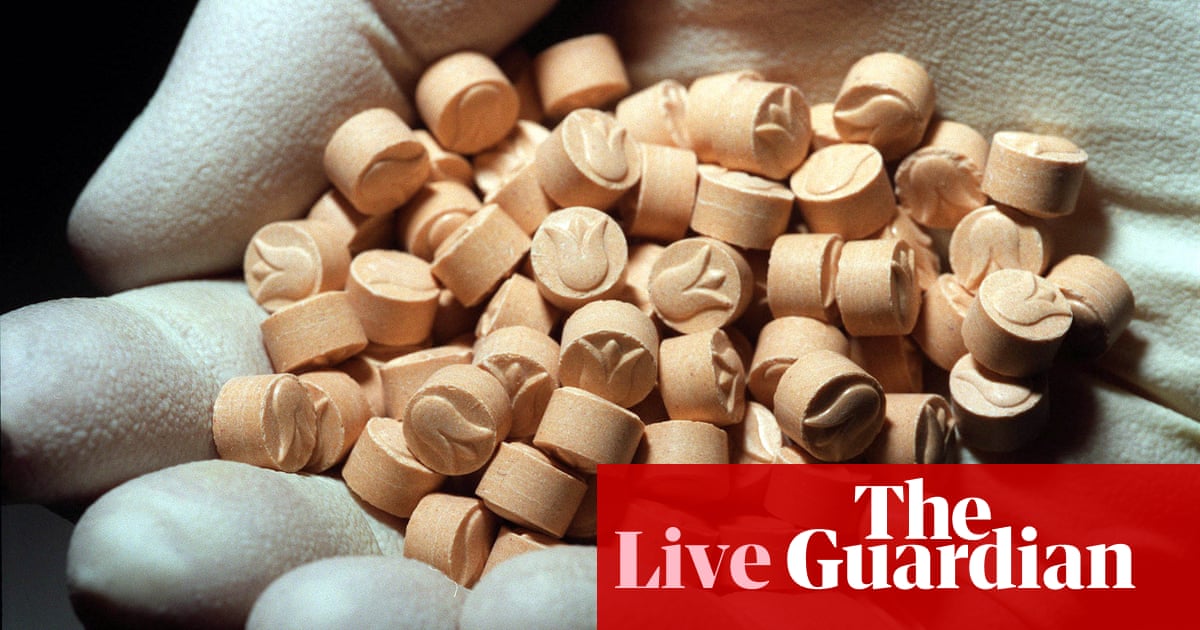Australia news live: Greens propose new national drug testing regime | Australian Greens

Key events
Chalmers offers no comment on possibility of interest rate cut in December
Chalmers wouldn’t be drawn on whether Australia’s weak GDP growth means the Reserve Bank (RBA) will reduce interest rates when its board next meets on 10 December.
He said:
Well, I would say about that, that the Reserve Bank, when it meets, will weigh up all of this data, as they usually do.
They’ll come to a decision independently. They’ll do that with me, without me pre-empting [it].
The RBA’s latest forecasts had GDP expanding at an annual pace of 1.5% by the end of 2024 and the national accounts released yesterday suggest that estimate will have to be revised lower.
Over the twelve months to the September quarter this year, Australia’s headline inflation rate rose by 2.8%, which was the lowest in more than three years and within the RBA’s target range of 2-3%.
However, underlying inflation, which stripped out goods that were more volatile in price, remained at 3.5%.
At its November meeting, the RBA left the cash rate – which guides interest rates set by banks – unchanged for an eighth meeting in a row, at 4.35%.
Chalmers acknowledges economy ‘very weak’
The federal treasurer, Jim Chalmers, says he acknowledges the Australian economy is “very weak”.
Chalmers is being interviewed on ABC Radio National Breakfast the day after data was released showing the economy grew at a weaker-than-expected pace in the September quarter despite extra government spending.
He said:
I do acknowledge that the economy is very weak and people are under a lot of pressure.
And if you look at those quite difficult set of figures that were released yesterday, there were some encouraging elements.
When you look at the national accounts, you can see that wages are growing, inflation is coming down, and the tax cuts are playing a helpful and meaningful role as well.
Gross domestic product (GDP) expanded 0.3% in the July-September months, the fastest in a year and the 12th quarter in a row of growth, the Australian Bureau of Statistics national accounts figures released on Wednesday showed.
As my colleague Peter Hannam reported yesterday, gross domestic product (GDP) expanded 0.3% in the July-September months, compared with the 0.5% rate expected by economists – and the annual growth of 0.8% is the weakest since the end of 2020.
Greens election policy calls for federal drug testing agency
Natasha May
The Greens’s new election policy for a federal expansion of pill testing would involve the creation of a new drug testing agency.
The agency, housed within the federal Department of Health and Aged Care, would coordinate and run drug testing sites in capital cities and regional hubs as well as providing free testing services at Australian music festivals.
Under the policy, the Greens say they would also provide additional funding to the department to coordinate data collection, analysis and communication of results of the drug tests.
The drug testing sites would be rolled out over the next 5 years starting with 10 drug testing sites in capital cities in 2026-27, and later expanding to ultimately encompass 18 drug testing sites in capital cities and 4 in regional hubs from 2028-29 onwards.
The party’s spokesperson for health and mental health, Senator Jordon Steele-John, said:
At the moment the biggest danger facing young people using drugs at festivals isn’t the substance itself but a failure of government policy that doesn’t allow people to be able to check what is in that drug and access education and medical services when needed.
We have a system designed to criminalise and stigmatise people who take drugs in our community which has led to tragic outcomes. It is time we listen to the community and the experts and implement commonsense approaches to minimise harm and risk.
The Greens’ announcement comes as the NSW Labor government prepares for the second day of its two-day drug summit in Sydney, where it is canvassing potential reforms including pill testing.
The summit hasn’t finished, but the NSW government has already ruled out decriminalising the personal possession of drugs, leading to criticism from experts and health groups.
Welcome

Catie McLeod
Good morning and welcome to our live news blog. I’m Catie McLeod and I will be hosting the blog this morning. Here are our top overnight stories.
Australia is still far from catching up to the levels of migration expected before the pandemic, a new study from the Australian National University has shown, contrary to claims of record-high migration.
Before Covid, net migration was projected to hit about 300,000 by 2025. But the study, led by the migration hub’s director, Alan Gamlen, found net overseas migration may still be 82,000 people short of that number.
The New South Wales Greens’ environment spokesperson, Sue Higginson, has called on state Labor to step in and block Idemitsu’s plan to expand its Boggabri coal project, saying if the project is granted approval, it will result in an additional 62m tonnes of coal being dug up and burned in Australia and overseas.
Higginson says the federal Labor government is refusing to consider the effects on climate change from coal mining.
As we reported yesterday, the federal government has declined to review the Boggabri mine as well as BHP Mitsubishi’s Caval Ridge coal project in central Queensland and Jellinbah Group’s Lake Vermont coal project in Queensland for their potential climate impacts.
The decision means the three mines will remain under assessment for potential approval.
And the Greens have announced a new election policy for a federal expansion of pill testing, involving the creation of a new drug testing agency. I’ll have more on this announcement for you shortly.
Source link







